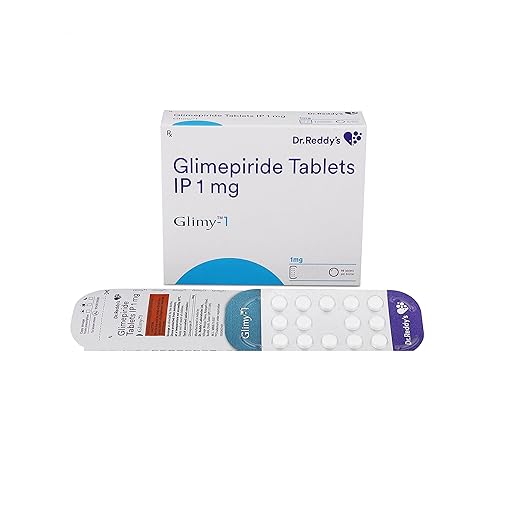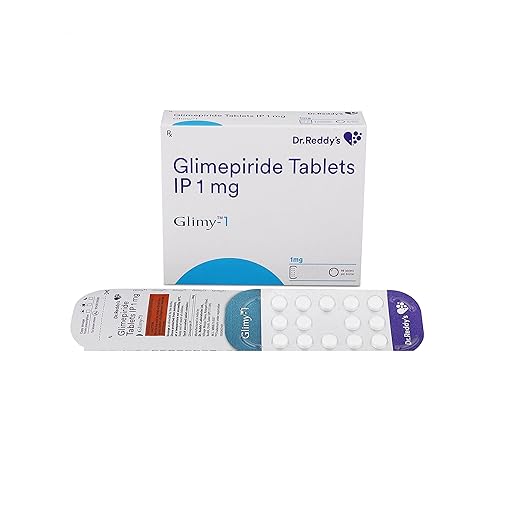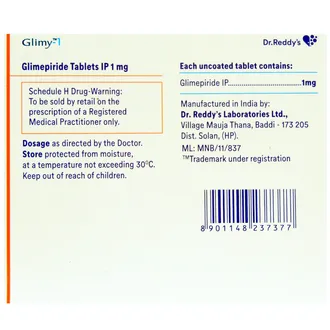Glimy 1 Tablet is an oral antidiabetic medicine belonging to the sulfonylurea group, used for managing type 2 diabetes in adults. It works by lowering blood glucose levels and helps reduce the chances of long-term complications of diabetes, such as kidney issues, nerve damage, or vision loss.
The medicine may be prescribed alone or in combination with other antidiabetic drugs. It is usually taken just before or along with the first meal of the day. For best results, it should be taken at the same time every day. The dose is tailored individually by the doctor based on your sugar levels and response to treatment.
You should not stop taking Glimy 1 Tablet on your own, even if you feel better or your sugar levels appear under control, as this can cause your blood glucose to rise again and increase the risk of diabetes-related complications. The treatment works best when combined with lifestyle changes such as healthy eating habits, regular physical activity, and weight management.
Some people using this medicine may experience side effects such as low blood sugar (hypoglycemia), nausea, dizziness, headache, weakness, or weight gain. Knowing the early warning signs of hypoglycemia—like sweating, tremors, dizziness, or blurred vision—is important, and you should always keep a quick source of sugar, such as sweets or fruit juice, with you. Alcohol intake should be avoided since it can further increase the risk of low blood sugar.
This medicine is not suitable for individuals with type 1 diabetes, diabetic ketoacidosis, or severe liver and kidney disorders. Patients with a history of heart problems, thyroid disorders, or hormonal imbalances should inform their doctor before use. Women who are pregnant or breastfeeding should only take this medicine after medical consultation. Regular monitoring of blood glucose, liver function, and blood cell counts is generally advised during the course of therapy.
Uses
• Management of type 2 diabetes mellitus
Benefits
Glimy 1 Tablet helps the pancreas release more insulin, which lowers blood sugar levels. Keeping blood glucose under control with this medicine reduces the chances of nerve damage, kidney impairment, heart disease, and other diabetes-related health concerns, supporting overall long-term well-being.
Possible side effects
• Low blood sugar (hypoglycemia)
• Headache
• Dizziness
• Weakness or tiredness
• Nausea
How to take
Swallow the tablet whole with water as prescribed. Do not chew or crush it. The medicine should be taken with meals for best results.
How it works
This medicine belongs to the sulfonylurea class of antidiabetic agents. It lowers blood glucose by increasing insulin secretion from the pancreas, thus helping to regulate sugar levels in the body.
Precautions
– Avoid alcohol while on this medication as it raises the risk of hypoglycemia
– Not recommended during pregnancy unless clearly necessary and prescribed by a doctor
– Likely unsafe while breastfeeding, as it may pass into breast milk
– Can affect alertness if blood sugar goes too high or too low, so use caution while driving
– Dose adjustment may be required for patients with kidney or liver problems; not advised for those with severe disease
Vendor Information
- Address:
- No ratings found yet!
























































































Reviews
There are no reviews yet.